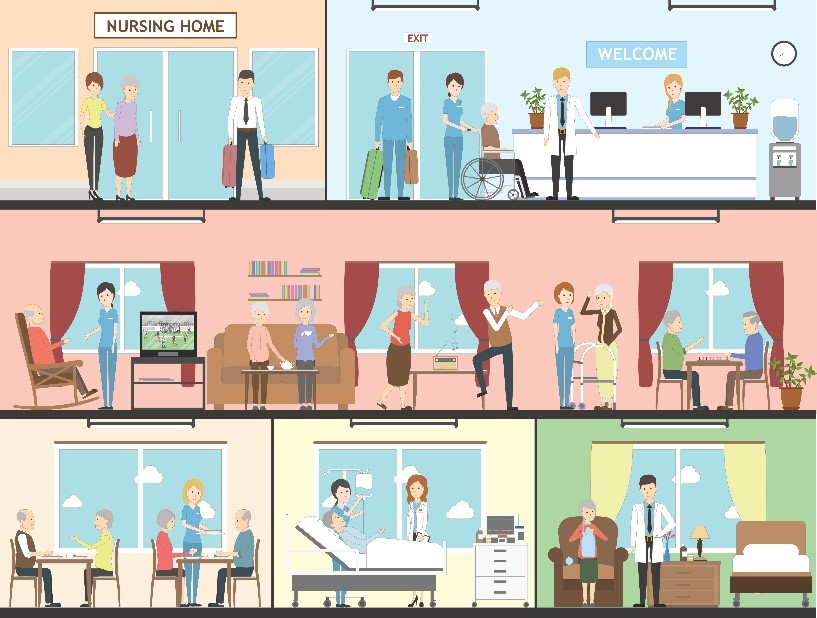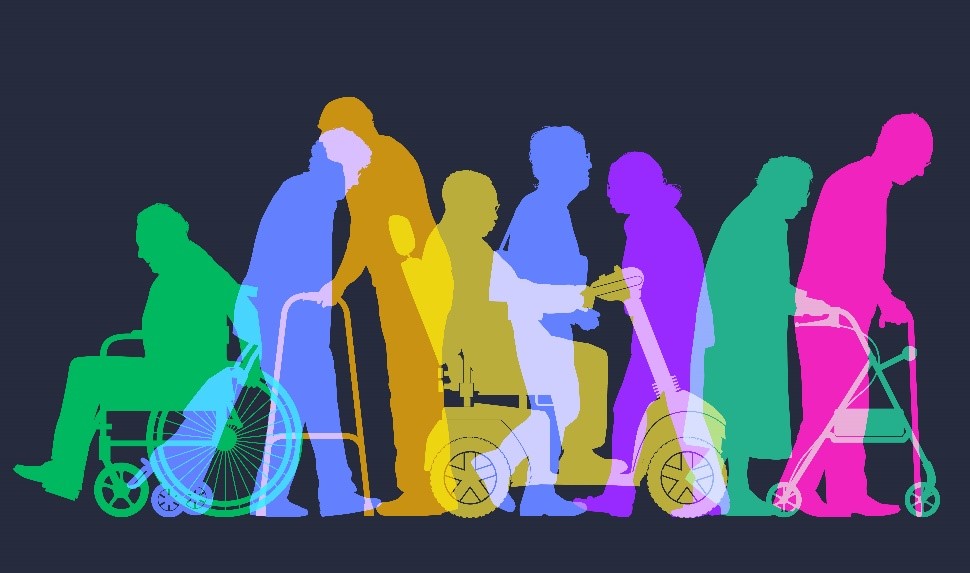4 Reasons It’s A Good Idea to Apply for Nursing Home Medicaid
A recent report from the Alzheimer’s Association states that one in nine Americans age 65 or older currently have Alzheimer’s. With the baby boomer generation aging and people living longer, that number may nearly triple by 2050. Alzheimer’s, of course, is just one cause of dementia—mini-strokes (TIAs) are also to blame—so the number of those with dementia may actually be higher.
As disease or disability progresses, so does the level of care the person requires—and so do the costs of that care. Options range from in-home care (starting at $46,332 per year) to adult daycare (starting at $17,676 per year) to assisted living facilities ($43,536 per year) to nursing homes ($82,128 per year for a semi-private room). These are the national average costs in 2016 as provided by Genworth in its most recent study.

1. Most spouses will do everything they can to take care of their spouses at home. I met with a woman at her home. She was spending over $9,000 a month for private pay non-medical home care providers to take care of her husband while she worked. She spent all her husband’s retirement fund, all their savings, and was about to get a reverse mortgage or home equity loan to continue paying the monthly fees. I asked her how she was going to keep up with those costs once her loan money was exhausted. She didn’t know. Further, I asked about how she was going to pay for her own care if she had similar medical issues. She didn’t know.
The financial impact on caregivers is substantial. Some caregivers pay to care for a family member with their own savings and retirement funds. These expenses include household expenses, personal items, transportation services, informal caregivers and long-term care facilities. Some caregivers reduce their own quality of living in order to pay for the care.
In addition, absences, reduced hours and chronic tardiness can mean a significant reduction in a caregiver’s pay at their day job. 77% of those surveyed missed time from work in order to provide care for a loved one, with an average of seven hours missed per week. About one-third of caregivers provide 30 or more hours of care per week, and half of those estimate they lost around one-third of their income. More than half had to work fewer hours, felt their career was negatively affected and had to leave their job as the result of a long-term care situation. Caregivers who lose income also lose retirement benefits and social security benefits. They may be sacrificing their children’s college funds and their own retirement.
2. Financial exhaustion isn’t the only type. Some spouses exhaust their health. 60% of caregivers suffer an accuse illness or accident that leads to death. One woman exhausted her rotator in her shoulders from lifting her heavy husband. He wasn’t obese, but her frail older body wasn’t accustomed to lifting that much weight repeatedly day in and day out. Tragically, I must report that she died unexpectedly. Her husband remained in the nursing home for almost two years after her death. I can’t help wondering how much longer her children and grandchildren would have enjoyed her if she had sought help caring for her husband sooner. We could have helped her by advocating for her to keep her husband’s income, allow Medicaid to pay the entire cost of his care, and allow her to keep all her savings.

3. We have helped a retired and disabled military veteran apply and qualify for nursing home Medicaid for his wife. His disability made it difficult for him to care for his wife at home. His disability affected his ability to walk balance. He used a cane. It was impossible for him to help his wife get around because he needed to concentrate on getting himself around. He felt really bad about moving his wife into a nursing community, but she needed care that he was willing but unable to provide. His wife was bed bound and needed assistance with all her activities of daily living including dressing, bathing, transferring, eating, and toileting. Her health and comfort came first above his guilt. He feels better now because instead of being a caregiver, he can be a visiting, loving family member. Marquardt Law Firm, P.C. filed the long-term care nursing home Medicaid application so that the gentleman’s wife would pay her income as the copayment, Medicaid picked up the shortfall between her income and the cost of care, and the gentleman kept all his income and his savings.
4. Sometimes, we help an elderly person who is single or widowed qualify for nursing home Medicaid. We have seen a client’s detailed notes requesting that her children be burdened by providing home care while they work and care for their own children. These details included a desire for the adult children to apply for nursing home Medicaid at the earliest opportunity. She cared for her own mother with Alzheimer’s. During the last year of her mother’s life, they were both essentially home bound because her mother was bed bound. She didn’t want her children to go through the stress and exhaustion that she endured. Attorneys at Marquardt Law Firm, P.C. can build a comprehensive plan like this for others too. We call it the “take care of clause.” Do you want your wishes about how you want to be taken care of to be legally valid and enforceable? Call our office today to schedule a time to meet with an attorney to find out if we are the right law firm for you and to design your plan.

